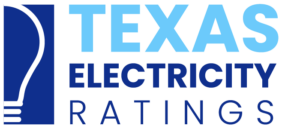I’ve been fairly critical of the PUC in recent posts, but recently Donna Nelson did speak out on something that I do actually agree with…or at the very least, it seems fair. As the generation capacity of Texas continues to shrink, and as the PUC’s efforts to lure new generation to date have failed, one of the last cards the PUC seems to be playing is voluntary demand response.
Voluntary demand response is where certain businesses shut down their power service during times of peak demand. Right now voluntary demand response exists only for commercial electricity customers…typically large businesses that are given incentives to shutting down their service during the hours of peak demand. But recently the PUC has floated the idea of making this option available to residential customers of Texas.
It’s a solid idea, even if it is only another band-aid over what is growing into a fairly large bullet hole in regards to the Texas electricity market. The problem is that the program, if made available to residential customers, could leave a lot of the Texas Retail Electricity Providers (REPs) holding the bag if customers choose to switch from one provider to another.
The reason for this is that REPs have to purchase electricity in advance for their customers, and if they’re buying on the spot market they might be paying exorbitant prices during days of peak demand. If in turn they managed to purchase energy on those days (which are exactly the days this program is designed to be utilized), then the REPs might be paying for electricity that isn’t needed if a large percentage of their customers willingly shut down their power for 3 hours. And if a month or two later, some of those customers leave for another provider, that is lost money that they’ll never be able to recover.
Some ideas Nelson proposed to mitigate this would be only allowing this program to residential customers who sign a 2 or 3 year fixed rate plan. Additionally there is the possibility that any technology that would have to be installed for customers could be recovered by an REP if a customer moves elsewhere after their term expires. None of these are clean solutions, but I think it’s encouraging that the PUC and REPs are actually having a meaningful dialogue about the prospect. Lately the PUC’s decisions have all been in favor or electricity generators, as opposed to REPs and the actual electricity customers of Texas. At least in this instance the PUC is interested in being fair to the REPs, while still potentially allowing residential customers an opportunity to take part in what would be a cost saving program during days of excessive heat.
